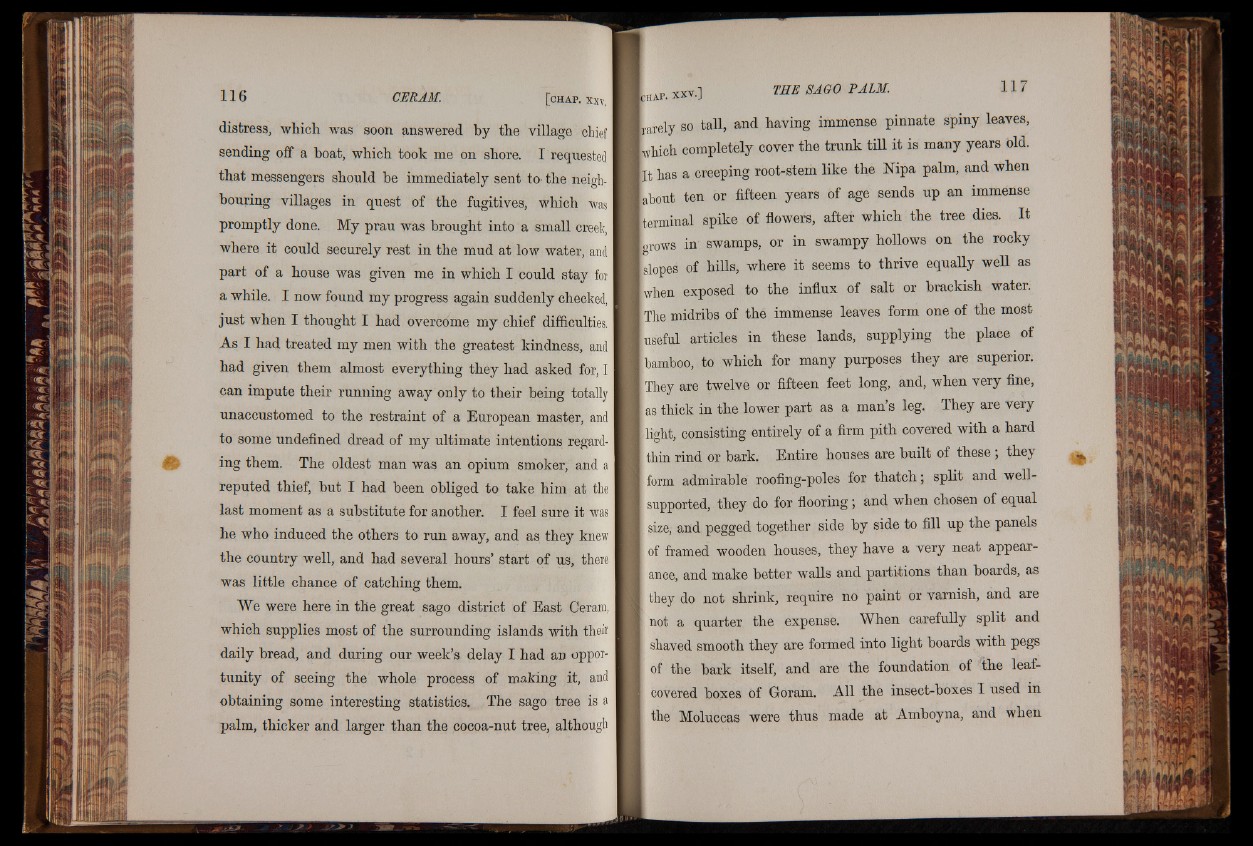
distress, which was soon answered by the village chief
sending off a boat, which took me on shore. I requested
that messengers should he immediately sent to- the neighbouring
villages in quest of the fugitives, which was
promptly done. My prau was brought into a small creek,
where it could securely rest in the mud at low water, and
part of a house was given me in which I could stay for
a while. I now found my progress again suddenly checked,
just when I thought I had overeóme my chief difficulties.
As I had treated my men with the greatest kindness, and
had given them almost everything they had asked for, I
can impute their running away only to their being totally
unaccustomed to the restraint of a European master, and
to some undefined dread of my ultimate intentions regarding
them. The oldest man was an opium smoker, and a
reputed thief, hut I had been obliged to take him at the
last moment as a substitute for another. I feel sure it was
he who induced the others to run away, and as they knew
the country well, and had several hours’ start of us, there
was little chance of catching them.
We were here in the great sago district of East Ceram,
which supplies most of the surrounding islands with their
daily bread, and during our week’s delay I had an opportunity
of seeing the whole process of making it, and
obtaining some interesting statistics. The sago tree is a
palm, thicker and larger than the cocoa-nut tree, although
■rarely so tall, and having immense pinnate spiny leaves,
■which completely cover the trunk till it is many years old.
■It has a creeping root-stem like the Nipa palm, and when
■about ten or fifteen years of age sends up an immense
■terminal spike of flowers, after which the tree dies. It
■crows in swamps, or in swampy hollows on the rocky
■slopes of hills, where it seems to thrive equally well as
■when exposed to the influx of salt or brackish water.
■ The midribs of the immense leaves form one of the most
■useful articles in these lands, supplying the place of
■bamboo, to which for many purposes they are superior.
■ They are twelve or fifteen feet long, and, when very fine,
l a s thick in the lower part as a man’s leg. They are very
■ light, consisting entirely of a firm pith covered with a hard
I thin rind or bark. Entire houses are built of these , they ^ I form admirable roofing-poles for thatch; split and well-
I supported, they do for flooring; and when chosen of equal
I size, and pegged together side by side to fill up the panels
I of framed wooden houses, they have a very neat appear-
I ance, and make better walls and partitions than boards, as
I they do not shrink, require no paint or varnish, and are
I not a quarter the expense. When carefully split and
I shaved smooth they are formed into light boards with pegs
I of the bark itself, and are the foundation of the leaf-
I covered boxes of Goram. All the insect-boxes I used in
[ the Moluccas were thus made at Amboyna, and when